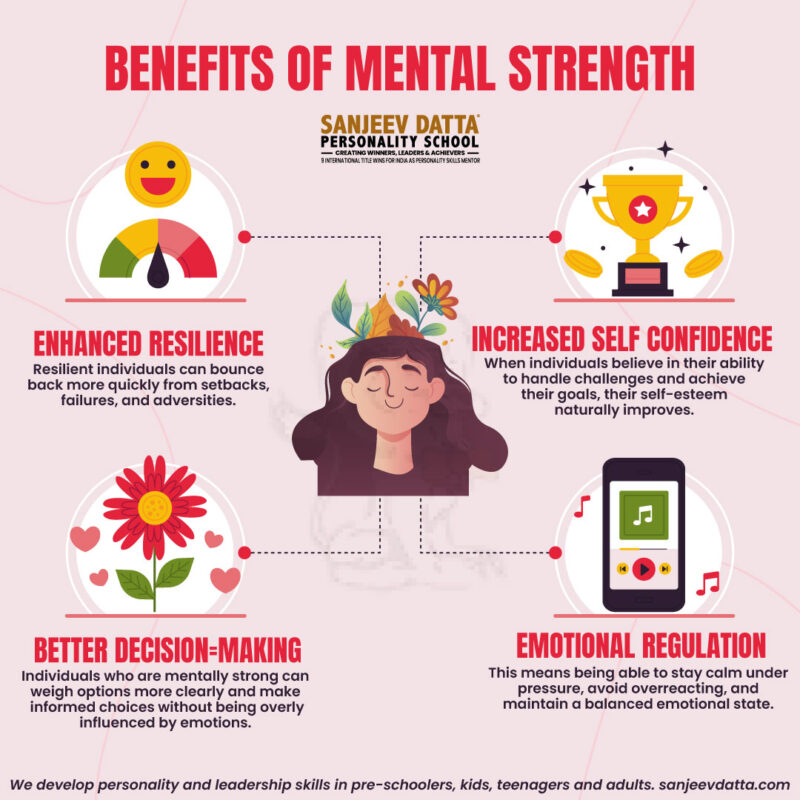Criticism is something we all encounter at various points in life, whether it’s from a boss, a colleague, a friend, or even a stranger on social media. It can sting, cause frustration, and sometimes even leave a lasting impact on our self-esteem. However, the ability to handle criticism effectively is crucial for personal and professional development. When taken in stride, criticism can be a powerful tool for growth, helping us see our blind spots and improve ourselves in ways we may not have considered. But how exactly should one deal with criticism? How do we separate helpful feedback from unwarranted negativity? More importantly, how can we respond in a way that fosters improvement without allowing it to dent our self-confidence? This article will explore these questions in depth, offering practical strategies and psychological insights on how to deal with criticism. By the end, you’ll not only be better equipped to handle criticism but also to transform it into an opportunity for growth and self-improvement.
Whether it’s in your personal relationships or at work, learning how to deal with criticism is a vital life skill. The next time someone offers feedback—constructive or not—you’ll know exactly how to take it in stride, respond appropriately, and use it as a stepping stone toward becoming your best self.
Understanding Criticism: The Types and Their Impact
To effectively deal with criticism, it’s essential first to understand the different types of criticism and how they can affect us. Not all criticism is created equal, and learning to differentiate between constructive and destructive feedback is the first step toward managing it well.
- Constructive Criticism
Constructive criticism is aimed at helping you improve. It’s typically given in a thoughtful and respectful manner, focusing on specific behaviors or areas for growth. The key characteristic of constructive criticism is that it’s meant to be helpful, not hurtful.
Example: A supervisor might say, “Your presentation was good, but next time, consider adding more data to support your argument.”
In this case, the criticism highlights an area for improvement but also acknowledges what was done well. This type of feedback can be invaluable for personal and professional growth.
2. Destructive Criticism
Destructive criticism, on the other hand, is not given with the intent to help. It’s often vague, emotionally charged, or even spiteful. Destructive criticism can feel like a personal attack rather than feedback on specific actions or behaviors.
Example: “Your work is awful. You’ll never get this right.”
This type of criticism offers no actionable insights and can damage self-esteem if taken to heart. Learning to handle destructive criticism is essential for maintaining emotional resilience and self-confidence.
3. Self-Criticism
Another form of criticism that often goes overlooked is self-criticism. Many of us are our harshest critics, constantly evaluating and judging our own actions, often unfairly. While self-reflection is important, excessive self-criticism can hinder progress and lead to feelings of inadequacy.
Understanding these different types of criticism helps you to respond appropriately. Constructive feedback can be an opportunity for growth, while destructive criticism often reflects more about the person giving it than about you. Self-criticism, if left unchecked, can become a significant barrier to personal development.

Why Criticism Feels So Painful?
Before we explore how to deal with criticism, it’s important to understand why it can feel so hurtful. Criticism, even when well-intentioned, can trigger a defensive emotional response. This reaction is often rooted in:
- Our Need for Approval: As social beings, we crave acceptance and validation. Criticism can feel like rejection or disapproval, which can be painful, especially when it comes from someone we respect.
- Self-Esteem Issues: If we already have doubts about our abilities or self-worth, criticism can amplify these feelings. In such cases, even minor feedback can feel like a personal attack, triggering anxiety or self-doubt.
- Negative Experiences: Past experiences with harsh criticism or failure can make us more sensitive to feedback. If we associate criticism with shame or embarrassment, we may develop a fear of being judged.
Understanding these emotional triggers is essential for managing your response to criticism. It’s natural to feel hurt, but recognizing that this reaction is often emotional rather than rational can help you approach criticism more objectively.
Visit: top career mistakes to avoid
How to Deal with Criticism: Practical Strategies
Dealing with criticism effectively requires both emotional intelligence and practical strategies. Here’s a comprehensive guide on how to handle criticism constructively:

- Pause and Reflect Before Reacting
The first step in dealing with criticism is to pause and resist the urge to react immediately. Criticism often triggers an emotional response, which can cloud judgment and lead to defensiveness. Taking a moment to breathe and collect your thoughts helps you approach the feedback more calmly.
Tip: If the criticism is particularly harsh or unexpected, it’s okay to say, “I need a moment to process this” before responding. This shows maturity and gives you time to evaluate the feedback without reacting emotionally. Become the person you aspire to be. Our expert-driven personality development course is the first step toward unlocking success and fulfillment.

- Separate Emotion from Fact
Not all criticism is an accurate reflection of your performance or worth. After pausing, try to separate the emotional impact of the criticism from the actual feedback. Ask yourself:
- Is the criticism based on facts or opinions?
- Does it highlight a genuine area for improvement?
- Is the person providing the criticism knowledgeable about the subject?
- By objectively assessing the feedback, you can determine whether it’s valid and worth addressing.
2. Ask for Clarification
If the criticism is vague or unclear, don’t hesitate to ask for clarification. This not only helps you better understand the feedback but also demonstrates that you’re open to learning and improving.
Example: If someone says, “Your work could be better,” ask, “Could you give me specific examples of what I can improve on?”
This approach turns vague criticism into actionable insights, making it easier to address.
Visit: how to be secretive
- Focus on the Opportunity for Growth
Even if the criticism stings, try to view it as an opportunity for growth. Constructive criticism can be a valuable tool for identifying blind spots and improving performance. Instead of dwelling on the negative, focus on how you can use the feedback to get better.
Tip: Reframe criticism in your mind as “coaching” rather than “judgment.” This shift in perspective makes it easier to accept and act on feedback.
- Respond with Gratitude
One of the most effective ways to deal with criticism is to respond graciously, even if it’s hard to hear. Thank the person for their feedback and acknowledge their effort in providing it. This demonstrates professionalism and emotional maturity.
Example: “Thank you for pointing that out. I appreciate your perspective and will work on improving in that area.”
By responding positively, you not only build a reputation for being open to feedback but also set a constructive tone for future interactions.
- Don’t Take It Personally
It’s easy to internalize criticism and view it as a reflection of your worth. However, criticism is often about specific actions or behaviors, not your character. By reminding yourself that feedback is not a personal attack, you can depersonalize the criticism and handle it more effectively.
Tip: If you find yourself feeling defensive, remind yourself: “This is about my work, not about me as a person.”
- Learn from Destructive Criticism
Destructive criticism can be more challenging to handle, especially when it feels like an attack. However, even destructive criticism can offer valuable insights if you look for the underlying message. Try to identify whether there’s a kernel of truth in the feedback, even if it’s poorly delivered.
Example: If someone says, “You never get things right,” consider whether there’s a pattern in your work that could use improvement, rather than focusing on the negative tone.
If the criticism is entirely unhelpful or malicious, it’s okay to disregard it or address it with the person giving it.
- Set Boundaries with Toxic Critics
Not all criticism is worth your time or emotional energy. If someone consistently offers destructive or unhelpful criticism, it may be necessary to set boundaries. Let them know that you’re open to constructive feedback but won’t tolerate negativity that isn’t aimed at helping you grow.
Example: “I appreciate feedback, but I’d prefer it if it’s focused on helping me improve rather than pointing out flaws without solutions.”
By setting clear boundaries, you protect yourself from harmful criticism while still being open to constructive feedback. Develop the charisma, confidence, and clarity you need to succeed in every aspect of life. Our personality development training program is your roadmap to success.
Using Criticism as a Tool for Self-Improvement
When handled properly, criticism can be one of the most effective tools for self-improvement. Here’s how you can turn feedback into growth:

- Keep a Feedback Journal
One practical way to use criticism constructively is to keep a feedback journal. Whenever you receive feedback, write it down, reflect on it, and list actionable steps for improvement. This helps you track your progress over time and identify recurring patterns in the feedback you receive.
2. Create an Action Plan
Instead of feeling overwhelmed by criticism, break it down into actionable steps. For example, if you’re told that your time management needs improvement, create a plan to develop better organizational skills. By focusing on small, manageable actions, you make it easier to implement changes.
3. Seek Regular Feedback
Don’t wait for criticism to come to you—proactively seek feedback from trusted mentors, colleagues, or friends. Regular feedback helps you stay on track and makes you more comfortable with receiving constructive criticism.
4. Embrace a Growth Mindset
A growth mindset is the belief that abilities and intelligence can be developed over time through hard work and dedication. By adopting this mindset, you’re more likely to see criticism as an opportunity to learn rather than as a judgment of your abilities.
- Overcoming the Fear of Criticism
One of the biggest barriers to handling criticism is the fear of receiving it in the first place. Fear of criticism can lead to avoidance behaviors, where you may shy away from taking risks or trying new things to avoid judgment. Here’s how to overcome that fear:
- Reframe Criticism as Learning
Instead of viewing criticism as something to fear, see it as an essential part of the learning process. No one is perfect, and everyone has areas for improvement. Criticism helps you identify those areas and grow.
2. Focus on Long-Term Growth
Rather than worrying about immediate feedback, focus on your long-term personal and professional growth. Every piece of criticism, whether positive or negative, is a stepping stone toward becoming better.
3. Build Self-Confidence
The more confident you are in your abilities, the easier it becomes to handle criticism. Work on building self-confidence through self-care, self-reflection, and regular practice of your skills. When you’re secure in your abilities, criticism feels less threatening.
Visit: how to choose friends wisely
Conclusion
Criticism is an inevitable part of life, but how we choose to respond to it makes all the difference. Learning how to deal with criticism effectively is a crucial skill for personal and professional growth. By understanding the different types of criticism, managing your emotional response, and focusing on the opportunities for improvement, you can turn even the harshest feedback into a catalyst for positive change.
Remember, criticism is not a reflection of your worth—it’s simply a tool for growth. The next time you encounter criticism, take a deep breath, reflect on the feedback, and use it to become a better version of yourself. When you approach criticism with an open mind and a willingness to learn, you’ll find that it’s one of the most valuable resources on your journey to personal development.
In the end, knowing how to deal with criticism will not only improve your self-awareness and emotional intelligence but also pave the way for long-term success and fulfillment.


